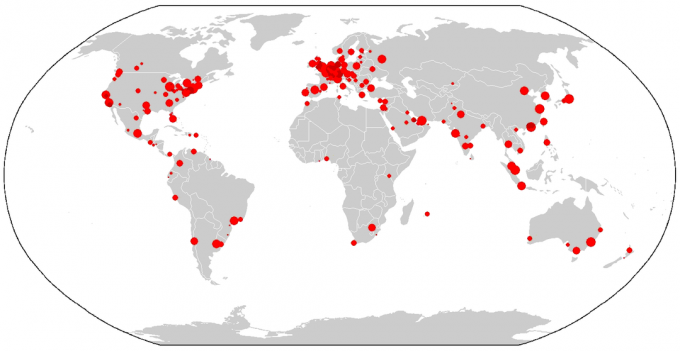Social inequality is a concept that mainly affects undeveloped and underdeveloped countries, where there is no balance in the standard of living of its inhabitants, whether in the economic, school, professional, gender spheres, among others.
The phenomenon of social inequality is marked mainly by the economic inequality, that is, when income is heterogeneously distributed in society; some being holders of many goods, while others live in extreme poverty.
Social inequality is characterized by the lack of quality basic education, few opportunities of employment, lack of incentives for the consumption of cultural goods, such as going to the cinema, theater and museums; among other features.
Causes of social inequality
Among the factors that lead to social inequality are the bad income distribution, a concentration of wealth and the lack of investments in social policies.
The bad distribution of income is the inequality between rich and poor, it occurs when most of the population lives with little income and few people have large fortunes (wealth concentration).
On the other hand, the lack of investments in social policies happens when governments do not make enough investments to meet the population's needs. When social investment is low, the services offered to the population are insufficient or of low quality.
Growth of social inequality
Some scholars say that the growth of social inequality began with the rise of capitalism, with the accumulation of capital (money) and private property. Economic power was concentrated in the hands of the richest, while the poorest families were "on the margin" ("marginalized") in society.
Nowadays, the insufficient economic growth of a country is also pointed out as one of the causes of the growth of social inequality.
Learn more about Capitalism.
Consequences of social inequality
Social inequality is a gateway to other types of inequalities, such as gender inequality, racial inequality, regional inequality, among others.
As a consequence of social inequality, several social problems that affect society:
- Favelas (slums),
- hunger and misery,
- Child mortality,
- Unemployment,
- Low quality of public education,
- Increased crime,
- Emergence of different social classes,
- Delay in the development of the economy in the country,
- Difficulty in accessing basic services, such as health, public transport and basic sanitation,
- Decreased access to cultural and leisure activities.
See also the meaning of Poverty.
Social inequality in Brazil
In Brazil, social inequality is striking and affects most Brazilians, which is confirmed by the results of the National Household Sample Survey (PNAD). From 2016 to 2017, the extreme poverty rate in the country grew just over 11%.
In comparison with other countries, Brazil is in tenth place ranking of world social inequality, document organized by the United Nations (UN).
Causes of social inequality in Brazil
In addition to the poor distribution of income and the concentration of wealth, there are also causes of social inequality in Brazil: lack of access to education. quality, low wages, unfair fiscal policy and difficult access to basic services (health, public transport and basic sanitation, due to example).
See more about the main causes of social inequality.
Consequences of social inequality in Brazil
Social inequality causes the emergence and growth of several problems, the main ones being:
- Increased unemployment levels,
- Hunger growth,
- truancy,
- Difficulty in accessing services such as quality health care, education and housing,
- Increased infant mortality,
- Little economic growth,
- Rise in crime rates.
know more about Social vulnerability and racial inequality.

